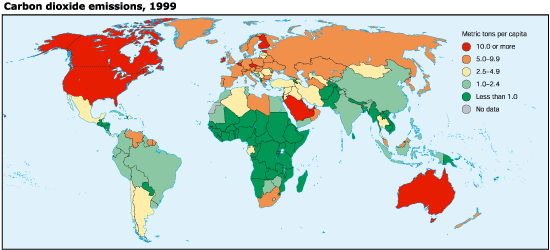BY VIVIAN WEINRESS
One of the most environmentally degrading and psychologically disturbing industries in the United States, Concentrated Animal Feeding Operations (CAFO’s), is consistently ignored by the media, causes extensive environmental degradation, and is wasting millions of government money in subsidies. Factory farming is the process of confining animals in unnatural conditions so as to maximize the amount of meat these industries can produce at the lowest cost. The amount of waste produced by so many animals in such a limited space often causes nearby lakes or rivers to become contaminated from runoff. These feeding operations are also very water intensive themselves, nearly 8% of human water use goes toward animal production. This does not include the amount of water that is needed to produce the crops for animal feed. The incredible amount of manure that so many animals create also emits greenhouse gases, such as methane, which contribute to global warming. The land needed to grow crops to feed these animals also has a huge impact on the environment mainly in the form of soil degradation. Farmers now use genetically modified organisms which can grow on soil that does not need to be replenished by growing different crops every couple of years. This ensures that the nutrients the crops are taking from the soil are not getting replenished and this often leads to soil desertification. These crops, primarily corn and soy beans, are heavily subsidized by the government and wastes millions of dollars annually to support an industry that is inefficient to begin with. The way in which these animals are mass produced is inconsistent with how the environment was structured to create meat and how humans were meant to consume meat. There needs to be an immediate change in the structure of governmental subsidies to encourage growth in industries that have positive impacts on its citizens.
Reference: Singer, Peter, and Jim Mason. The Ethics of What We Eat. Rodale, 2006. Print.
Sunday, April 25, 2010
Subscribe to:
Post Comments (Atom)

I completely agree that this system needs severe modification. In addition to the damage that theses facilities are having on our environment, they are also incredibly cruel to the animals that reside within their walls. This entire system needs to be revamped so as to allow for decreased environmental degradation and increased humanity. Subsidies could definitely aid in beginning to repair this system. It is possible to have clean, environmentally friendly and humane meat production, this current system has gone on for far to long.
ReplyDeleteThis comment has been removed by the author.
ReplyDeleteAnimals raised in factory farms are exposed to a great amount of bacteria and disease because they are kept in such close confinement. The farms feed the animals mass amounts antibiotics to keep them from getting sick; in fact, about 50% of the antibiotics administered in the US are used in farm animals. They are also fed growth-promoting hormones and appetite stimulants. This creates a human health issue since it builds up the tolerance in humans for antibiotics. You also mentioned the large amount of water needed for these farm operations--a big negative externality worth mentioning is the groundwater extraction process, which leads to land subsidence and is a serious concern for geologists.
ReplyDeleteThe American livestock industry is undoubtedly incredibly unsustainable and morally questionable. But, the reason for these practices and the government subsidies on livestock feed crops is that Americans demand cheap food. Any potential reform in the meat production industry would almost certainly raise meat prices, which would most likely be met with widespread disdain by most Americans who don't understand the unsustainable nature of the current system. America become accustomed to cheap meat from these large scale industrial farms, and it will definitely be difficult to make the industry more sustainable without raising prices.
ReplyDeleteAlthough most people are completely against what goes on in CAFOs as soon as they see what actually goes on there, we, the consumer, have done this to ourselves. Although we don't like what is going on in factory farms, the basis of the problem is that the majority of Americans would rather see low prices than ethically raised farm animals. If we want to see a change in large-scale farming operations we need to change America's ethics first.
ReplyDeleteI agree with you. There really is no debate over the scientifically studied ecological and environmental effects of CAFOs. The debate exists in the economic realm, and proponents make claims to decreased labor (it now only takes one man-hour of labor to raise 100 lbs of milk or pork), increased efficiency, and increased production capacity to meet food demand. All of this amounts to meat at a cheap price. But you do a good job of cutting the core of this issue, which is that cheap meat is illusory, and all the efficiency, etc. is possible because of the heavy governmental subsidation of corn and soy feed grain as well as CAFO style agribusiness and vertical integration of feeding operations.
ReplyDeleteI agree with you. There really is no debate over the scientifically studied ecological and environmental effects of CAFOs. The debate exists in the economic realm, and proponents make claims to decreased labor (it now only takes one man-hour of labor to raise 100 lbs of milk or pork), increased efficiency, and increased production capacity to meet food demand. All of this amounts to meat at a cheap price. But you do a good job of cutting the core of this issue, which is that cheap meat is illusory, and all the efficiency, etc. is possible because of the heavy governmental subsidation of corn and soy feed grain as well as CAFO style agribusiness and vertical integration of feeding operations.
ReplyDelete